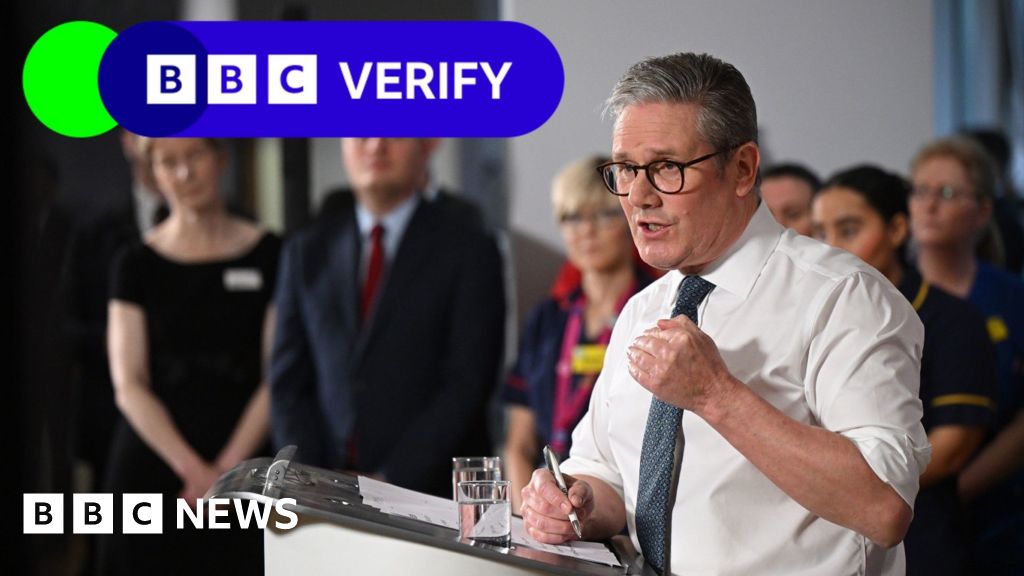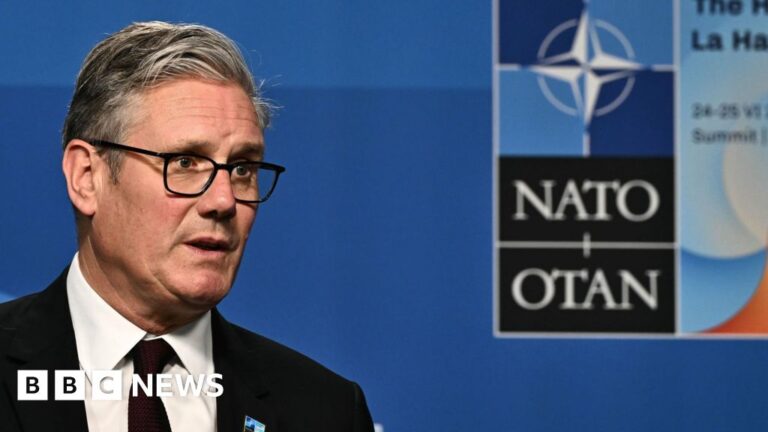Here is the plain text result:
Multi-billionaire Elon Musk has accused Prime Minister Sir Keir Starmer of being “deeply complicit in the mass rapes in exchange for votes”.
Mr Musk has published a series of posts on X suggesting Starmer failed to deal with the grooming gang scandal while head of the Crown Prosecution Service (CPS) between 2008 and 2013.
In response, Starmer has accused critics of “spreading lies and misinformation” and claims he tackled prosecutions “head on”.
The row between Mr Musk and Starmer centres around a series of high-profile cases where groups of men – mainly of Pakistani descent – were convicted of sexually abusing and raping predominantly young white girls around the UK.
The CPS, an independent body, prosecutes criminal cases in England and Wales. After the police investigate crimes and present their findings, the CPS decides whether to prosecute based on evidence and public interest.
Starmer was appointed head of the CPS in 2008 and held the role for five years. He became an MP in 2015.
The CPS was criticised for a decision not to proceed with a prosecution in Rochdale on the basis that it viewed the main victim as “unreliable” following an investigation between August 2008 and August 2009.
That decision was overturned later by Nazir Afzal in 2011 after being appointed by Starmer as the CPS chief prosecutor for north-west England.
Prof Jay’s report into the Rotherham cases said the police would often cite the CPS as being unwilling to prosecute alleged perpetrators, but they said that it had been “much more helpful” later on.
A 2013 report from the Home Affairs Committee said “unlike many other official agencies implicated in this issue”, the CPS had “readily admitted that victims had been let down by them and have attempted both to discover the cause of this systematic failure and to improve the way things are done so as to avoid a repetition of such events”.
Maggie Oliver, a former Manchester detective who now campaigns for victims of child sex abuse, told BBC Verify that the CPS “bear a great deal of responsibility for the failures around this issue”, including bringing inadequate charges and blaming victims.
She added that while there was now much more awareness around the issue, “in my foundation we still see individual cases subjected to massive failures in the systems”.
We have been unable to find any direct criticism of Starmer personally in any of the reports on the scandal, nor can we identify any suggestions that he himself made any decisions not to prosecute.
The prime minister has robustly defended his record as the former head of the CPS, telling journalists he: Changed the prosecution approach to “challenge myths and stereotypes” and left office when the CPS had the highest number of child sex abuse prosecutions on record.
It is correct that Starmer revised the guidance on child sexual exploitation in 2013 to make future prosecutions easier.
Previously, victims may not have been viewed as credible if they had not complained immediately, if they had used drugs or alcohol or if they had dressed or acted in particular ways.
On child sexual abuse prosecutions, we found CPS figures dating back to 2007 but the early years are now only on archived web pages – as they are no longer on the CPS website.
They show that the “number of prosecutions for child sexual abuse flagged cases” did rise from that year to reach 4,794 in April 2010 to March 2011 – a peak for Starmer’s time in charge of the CPS.
That total was subsequently surpassed – there were nearly 7,200 prosecutions in 2016-2017.
BBC Verify has asked Downing Street for more detail on the data behind the prime minister’s claim.
On reopening cases, Mr Afzal said that the creation of a national panel to revisit cases under Starmer had been a success.
“That panel also included – for the first time ever – external representatives. It revisited dozens of cases that were then restarted,” he said.
In defending his record, Starmer referred only to the broad category of child sex abuse prosecution data.
When it comes to child grooming gangs, there is no single clear data set because no specific offence exists.
Instead, offenders can be prosecuted for causing or facilitating sexual exploitation, or for committing specific offences such as rape and indecent assault.
Information on child grooming-related prosecutions appear in Prof Jay’s 2022 report into child sexual exploitation by organised networks – a government-commissioned report into institutional child abuse failings published in 2022.
The report mentions several “significant prosecutions” between 2010 and 2014, including 35 convictions which took place while Starmer was DPP:
* November 2010 – five men convicted in Rotherham
* November 2010 – 11 men convicted in Derbyshire
* 2008-2010 – three men convicted in Cornwall
* May 2012 – nine men from Rochdale and Oldham convicted
* June 2013 – seven men from Oxford convicted
A Times report from 2011 identified 17 grooming gang prosecutions since 1997.
It said 14 of them took place during the previous three years and involved the on-street grooming of girls aged 11 to 16 by groups of men across 13 towns and cities.
A report by the National Police Chiefs’ Council last year concluded that 5% of child sexual abuse and exploitation crimes were group-based – but more specific figures weren’t disclosed.
BBC Verify has sent a freedom of information request to the CPS asking for a yearly breakdown of prosecutions for child grooming related offences.
We have also contacted the Ministry of Justice and the Home Office.
Source link




